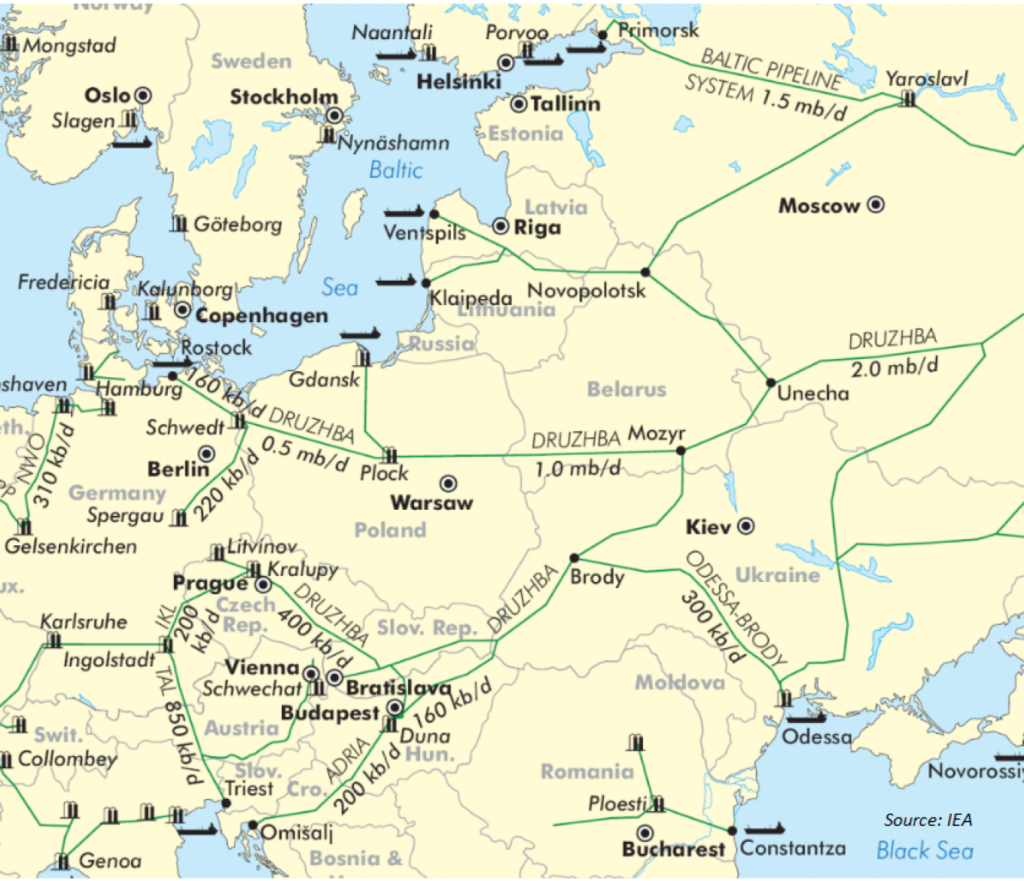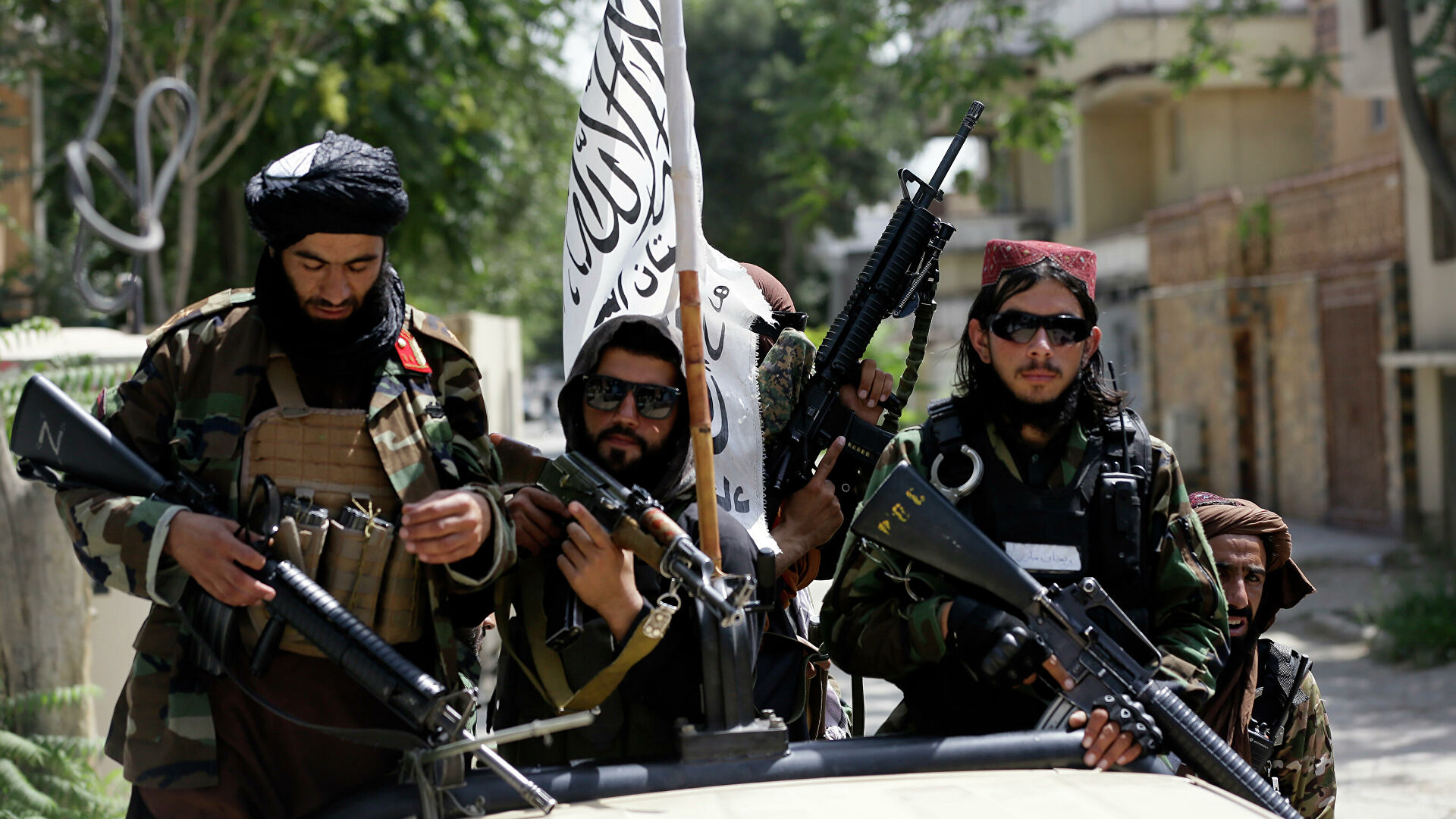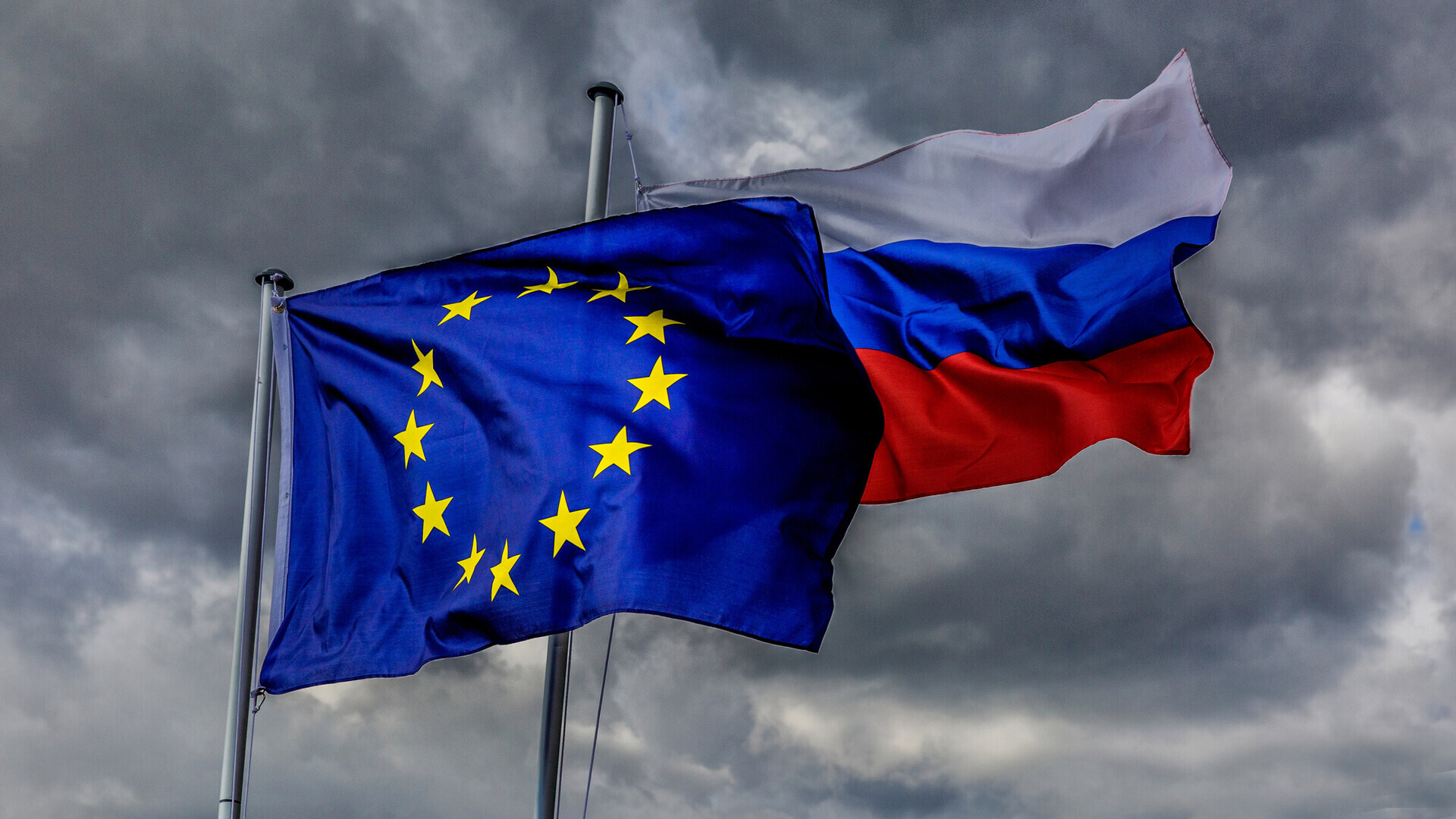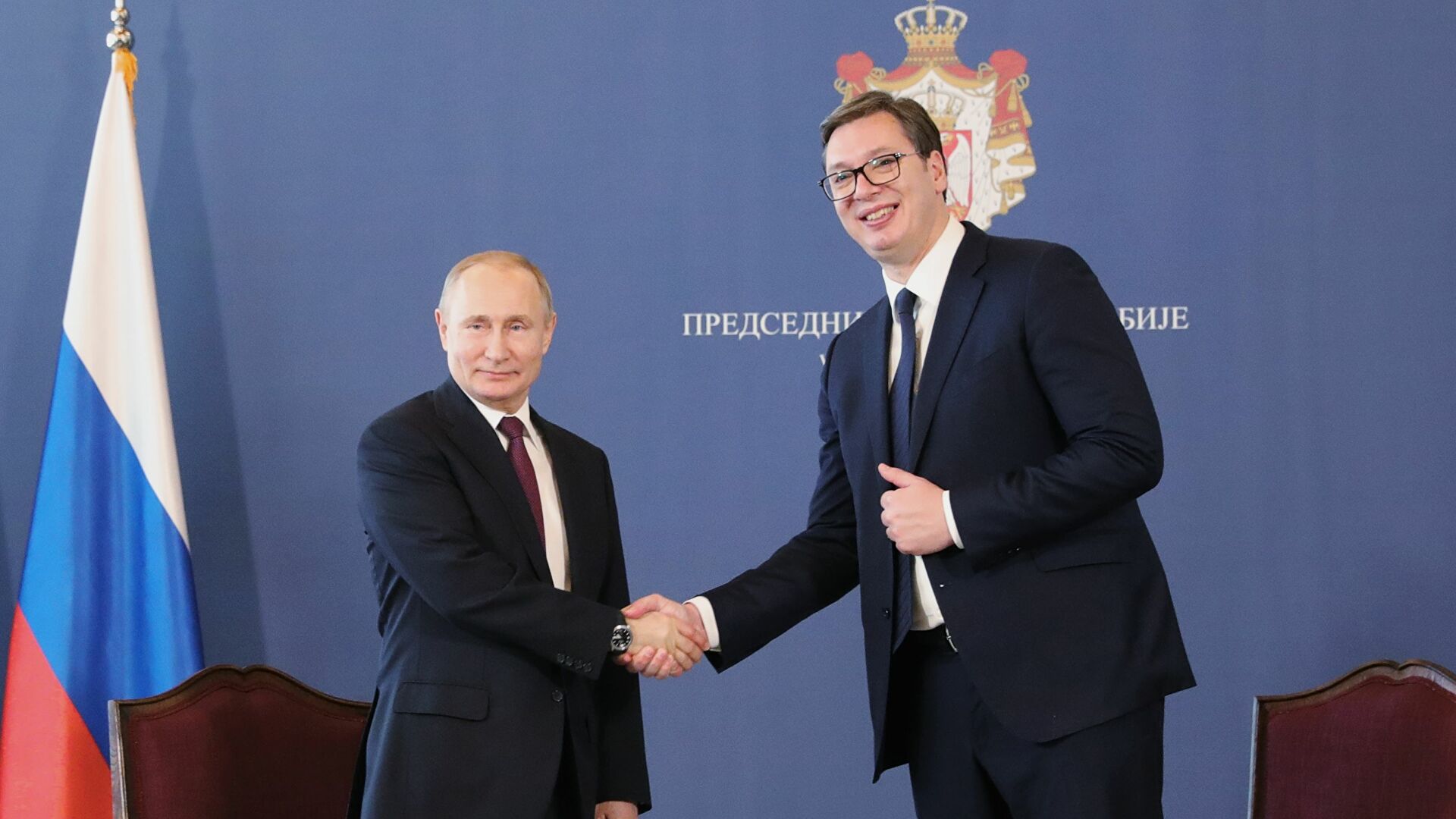The European continent is a poor region in terms of underground treasure. Therefore, it supplies its energy needs from neighboring countries. Europe, which is foreign-dependent especially in primary energy sources, imports energy mostly from Russia. The effects of the Ukraine – Russian War, which still continues today, also affect this energy import. In this case, Europe once again faced its dependence on foreign energy, which it had been aware of for many years. However, the European Union has finally started to take concrete steps to end this dependency. These concrete steps taken will be examined under the name of alternative energy searches in this article.
Firstly, the main concept of the subject, energy, will be mentioned. Next, Europe’s dependence on energy will be analyzed. Immediately after the analysis, the importance of Russian energy will be mentioned. Because we need to understand the importance of Russian energy, which affects Europe so much. Then, the energy dependency history of the European Union and Russia will be examined. Meanwhile, Druzhba Pipeline, an important pipeline built due to this dependency, will be mentioned. Finally, the main subject of the article, the European Union’s search for new alternative energy ways instead of Russian energy will be discussed and it will be discussed whether the ways developed as a solution will work or not. Also, various research articles, current news, and official sites were used as a literature review for this article.
Why is Energy Important for Countries?
First of all, we need to learn what energy is and why it is important for countries. According to physics, energy is the ability to do work. While being obtained, it can exist in many different forms. At the same time, energy can be transformed into many forms (Energy | Definition, Types, Examples, & Facts, n.d.).
For this article, we will not examine the scientific definition of energy. However, the place of fossilized resources (natural gas, coal and oil) in international relations is important for us. Because the energy capacities of countries directly affect the welfare of that country. We can say that the steam power energy discovered during the Industrial Revolution is the beginning of this situation. Later, the developing industry and urbanization of the countries increased their energy needs in a direct proportion. Increasing energy demands have caused wars and necessitated strategic agreements. Because the energy capacity of each country is not enough to meet its own energy needs and even in some countries it is almost not possible. We can say that this situation makes countries dependent on each other in terms of energy. Especially in a globalizing and developing world, energy addiction occupies a very important place. In addition, energy dependence is a subject that is frequently included in the policies of countries for their national and global strategies.
The Europe’s Dependence on Energy
The European continent has many underground resources formed in the geological period. However, we cannot say that these resources are sufficient for the entire continent. These scarce resources have been used and depleted since the Industrial Revolution, as stated in the previous part. Therefore, the European continent is a region that needs mineral imports to a large extent. Especially after the coal mine was abandoned many years ago, oil and natural gas reserves are quite insufficient for the region (Poulsen & Berentsen, n.d.). For this reason, countries in the European continent are dependent on foreign sources for the primary energy resources necessary for their development. When we examine the studies, we can see that the need for oil and natural gas is at the forefront. In particular, the need for natural gas reaches the highest levels because natural gas is used as an energy source in every area in Europe, from residences to industries. As technologies progress, the dependence on this energy is increasing.
When we look at the energy dependency graph of the European Union countries for 2020, we can see that Europe has an average of 58% in energy dependence. However, we can say that the share of energy imports in the leading countries of Europe is around 60 to 70 percent, considering the studies (Euronews, 2022). These rates are quite high for these European Union countries.
The Importance of Russian Natural gas and Oil
Russia is a country that exists in a region with a very important geological infrastructure. This infrastructure has provided Russia with advantages for many years and these advantages are especially advantages in the economic field. In fact, export revenues belong to energy exports.
After the United States, Russia is the world’s second-largest energy exporter. Because it has a large part of the existing gas reserves in the world. Especially for European Union countries, Russian gas is of great importance. In addition, Russia supplies gas to Europe with its long and wide pipelines. It is prominent in the 2021 reports that almost 50% of the gas needed by the European Union is provided by Russia. Especially Germany is the European Union country that needs this gas the most (Energy Fact Sheet: Why Does Russian Oil and Gas Matter? – Analysis, 2022).
The Story of the European Union’s Dependence on Russian Energy
As mentioned in the previous parts, the European continent is a region that is getting poorer over time in terms of primary energy sources. As a result of this, European Union countries are becoming more and more dependent on foreign energy sources. Moreover, countries primarily want to supply their energy needs from neighboring countries in terms of being economical and easily transportable. Russia is the most suitable country for this purpose for Europe.
We can say that there is no common energy policy among European Union countries. Therefore, this situation causes confusion. However, there is an internal energy market as required by the European Union’s policy. With the disintegration of the Soviet Union, the European Energy Charter was drawn up to regulate the EU internal energy market. However, this Charter had no legal value so, it did not be binding between countries. Then, in 1994, the European Energy Treaty was agreed upon and entered into force in 1998. This agreement is a multilateral agreement. Moreover, with this agreement, it was aimed to create a world energy market based on the global principles and rules of the World Trade Organization. After this agreement, a problem was encountered. Russia and the United States refrained from ratifying this agreement. The decision of Russia not to participate in the global and regional energy policies of the European Union forced the European Union to develop policies specific to Russia. Thus, long-term dialogue processes began between Russia and EU countries (Uçkan Dağdemir, 2007).
In line with this story, we can more easily interpret the dependence of European Union countries on Russian energy. We can say that these dialogues have developed over time and agreements have been made in the longer term. Thus, any war situation or disagreements in the region will damage these dialogues. In fact, the current Ukrainian – Russian War in the region greatly damages this story. This war had a great effect, especially on the energy lines, and natural gas pipelines, passing through the region. We need to talk about these natural gas pipelines in general so that we can better understand the situation.
First of all, the pipeline, which is important for European countries, is the Druzhba Pipeline. With a length of 5,500 km, this pipeline has the title of the longest pipeline in the world and it is a pipeline carrying crude oil (Simopt, n.d.).


Druzhba Pipeline is of great importance to Europe. It maintains its importance both in terms of the amount of crude oil it carries and the roads through which the pipeline passes. This pipeline, whose starting point is Russia, goes towards Ukraine and Poland, as can be seen on the map. Crude oil coming to Ukraine and Poland is distributed to European countries via these two countries. At this point, any conflict or war situation in these regions will negatively affect this pipeline. As a matter of fact, European Union countries are experiencing this situation in the current Ukraine-Russia War.
There is an important point about the Druzhba pipeline, which is that before the war Russia tried to cut down on the crude oil that had to pass through this pipeline. These cuts were related to the pipeline through Ukraine, which is one of the two routes of this pipeline. For this reason, Europe could not get the amount of energy it needed and agreed with from Russia. Actually, Russia was supposed to comply with the long-term agreements, but it did not. We can say that this situation and Russia’s occupation of Ukraine made Russia an unreliable country. For this reason, the European Union has once again faced its dependence on Russia’s energy. But this time, the European Union is determined to reduce its dependence on Russian energy. The steps taken by the European Union to reduce this dependency will be explained in the next part.
Europe’s Quest For New Energy
The insecure environment created by Russia’s occupation of Ukraine led the European Union to new searches for energy. Speeches by Ursula von der Leyen, President of the European Commission, support this argument. Ursula von der Leyen emphasizes that this dependency story must be put to an end in every speech. She frequently mentions that strategic investments in energy are important and that new energy-exporting countries should exist (Şimşek, 2022).
The frequent repetition of this rhetoric by every politician, every academic, and every speaker forced the EU to take new steps. The first of these steps was prepared by The International Energy Agency (IEA). The 10-point Energy Dependency Reduction Project prepared by the International Energy Agency is very important. In this part, these 10 points will be briefly mentioned.
In line with 10-points, we can say the following Europe aims to reduce the use of natural gas in various ways in every field. It is also emphasized in almost every item that the decreasing use of natural gas will positively affect consumers’ budgets. Of course, Europe’s search for new alternative ways in energy continues.
Another issue that needs to be mentioned is that the natural gas reserves in Algeria come to the fore. In fact, we can say that Europe’s eyes are on Algerian reserves as an alternative to Russian natural gas. Because Algeria is the country with the most natural gas reserves among the countries in North Africa. At the same time, natural gas can be easily transported to Europe via Spain and Italy due to its location (Matalucci, 2022). However, according to some studies, it is emphasized that Algerian gas will not be sufficient for Europe’s gas need. Although it seems like a reliable alternative energy source for Europe, it is actually not enough. In addition, the infrastructure to carry this gas is not at a sufficient level. In addition, the most important point is that there is military and economic cooperation between Algeria and Russia. Therefore it is undesirable to harm these relationships (Gómez, 2022).
The last of Europe’s quest for alternative energy is Liquefied Natural Gas (LNG). Natural gas pipelines should be built as is known to ensure the transportation of natural gas. The pipeline from which Europe supplies Russian gas is located in a very risky geography due to the current war. At the same time, Europe is trying to reduce its dependence on Russian gas. Gas reserves that can be obtained from Europe’s neighboring countries can only be realized through pipelines. But with the developing technology, there are other ways of supply. One of these ways is the sea route. Natural gas, which we know is supplied only through pipelines, can also be supplied by sea route. This way can only be applied by liquefying natural gas. The liquefied natural gas source is an alternative that can be used for Europe against Russian gas (Boehm & Wilson, 2022). However, according to research, this alternative energy against Russian gas can affect the economy of the European Union quite negatively. Because it is a very costly method. Also, there is also the problem of infrastructure for LNG supply and use in Europe. For this reason, the maximum capacity that can be provided cannot be reached. In other words, LNG can only supply half of the natural gas coming from Russia. LNG, therefore, does not provide a solution (Temizer, 2022). In this case, Europe will have to consider every circumstance in the path it chooses to reduce its dependence on Russian energy.
In light of all the information in this article, As experienced in the past years, the first place affected by war and crisis situations is the energy network. Moreover, it seems that Russia will continue to maintain its position as the second most important energy supplier in the world. It seems that Europe’s energy dependence on Russia will continue for many years.
BIBLIOGRAPHY
A 10-Point Plan to Reduce the European Union’s Reliance on Russian Natural Gas – Analysis. (2022, March). IEA. Retrieved May 10, 2022, from https://www.iea.org/reports/a-10-point-plan-to-reduce-the-european-unions-reliance-on-russian-natural-gas
Boehm, L., & Wilson, A. (2022, April). EU gas storage and LNG capacity as responses to the war in Ukraine. EPRS | European Parliamentary ResearchService. Retrieved May 10, 2022, from https://www.europarl.europa.eu/thinktank/en/document/EPRS_BRI(2022)729401
Clifford, C. (2022, March 8). How Europe can reduce its dependence on Russian natural gas. CNBC. Retrieved April 25, 2022, from https://www.cnbc.com/2022/03/07/how-europe-can-reduce-dependence-on-russian-gas-according-to-iea.html
Elüstü, S. (2021). Avrupa Birliği’nin Enerji Güvenliği: Enerji İthalatı Bağımlılığı ve Ekonomik Büyüme İlişkisi. Istanbul Journal of Economics / İstanbul İktisat Dergisi, 71(1), 133–162. https://doi.org/10.26650/istjecon2021-942116
energy | Definition, Types, Examples, & Facts. (n.d.). Encyclopedia Britannica. Retrieved May 10, 2022, from https://www.britannica.com/science/energy
Energy Fact Sheet: Why does Russian oil and gas matter? – Analysis. (2022, March 21). IEA. Retrieved April 25, 2022, from https://www-iea-org.translate.goog/articles/energy-fact-sheet-why-does-russian-oil-and-gas-matter?_x_tr_sl=en&_x_tr_tl=tr&_x_tr_hl=tr&_x_tr_pto=wapp
Euronews. (2022, April 4). Avrupa ülkeleri enerjide dışa ne kadar bağımlı, doğal gazı hangi ülkelerden alıyor? Retrieved April 25, 2022, from https://tr.euronews.com/2022/03/01/avrupa-ulkeleri-enerjide-d-sa-ne-kadar-bag-ml-dogal-gaz-hangi-ulkelerden-al-yor
Gómez, E. (2022, February 9). Algeria is unable to cover natural gas supplies to Europe. Atalayar. Retrieved May 10, 2022, from https://atalayar.com/en/content/algeria-unable-cover-natural-gas-supplies-europe
Kustova, I. (2016). Towards a comprehensive research agenda on EU energy integration: policy making, energy security, and EU energy actorness. Journal of European Integration, 39(1), 95–101. https://doi.org/10.1080/07036337.2017.1258757
Lu, M. (2022, March 23). Visualizing the EU’s Energy Dependency. Visual Capitalist. Retrieved April 25, 2022, from https://www.visualcapitalist.com/visualizing-the-eus-energy-dependency/#:%7E:text=Energy%20Dependency%2C%20by%20Country&text=Rather%2C%20it%20means%20that%20the,a%20net%20exporter%20of%20energy.&text=Over%20this%2020-year%20timeframe,imports%20over%20those%20two%20decades.
Matalucci, S. (2022, May 4). Can Algeria contribute to the EU’s energy security? DW.COM. Retrieved May 10, 2022, from https://www.dw.com/en/can-algeria-contribute-to-the-eus-energy-security/a-61680466
Montgomery, S. L. (2022, March 3). War in Ukraine is changing energy geopolitics. The Conversation. Retrieved April 25, 2022, from https://theconversation.com/war-in-ukraine-is-changing-energy-geopolitics-177903
Poulsen, T. M., & Berentsen, W. H. (n.d.). Europe – Resources and power. Encyclopedia Britannica. Retrieved May 10, 2022, from https://www.britannica.com/place/Europe/Resources-and-power
Simopt, S. (n.d.). Druzhba Pipeline. International Association of Oil Transporters (IAOT). Retrieved May 10, 2022, from https://www.iaot.eu/en/oil-transport/druzhba-pipeline
ŞImşek, A. (2022, May 6). EU Commission chief says Europe should end reliance on Russian gas. Anadolu Agency. Retrieved May 10, 2022, from https://www.aa.com.tr/en/europe/eu-commission-chief-says-europe-should-end-reliance-on-russian-gas/2580950
Temizer, M. (2022, March 16). Rus gazına alternatif görülen LNG, Avrupa için kısa vadede çözüm oluşturmuyor. Anadolu Agency. Retrieved May 10, 2022, from https://www.aa.com.tr/tr/ekonomi/rus-gazina-alternatif-gorulen-lng-avrupa-icin-kisa-vadede-cozum-olusturmuyor/2536582
Uçkan Dağdemir, E. (2007). Avrupa Birliği’nde Enerji Arz Güvenliği İçin Dış Enerji Politikası Arayışları. Eskişehir Osmangazi Üniversitesi Sosyal Bilimler Dergisi, 8(1). https://dergipark.org.tr/tr/pub/ogusbd/issue/10991/131535
What is energy? explained – U.S. Energy Information Administration (EIA). (2021, December 13). U.S. Energy Information Administration. Retrieved May 10, 2022, from https://www.eia.gov/energyexplained/what-is-energy/












